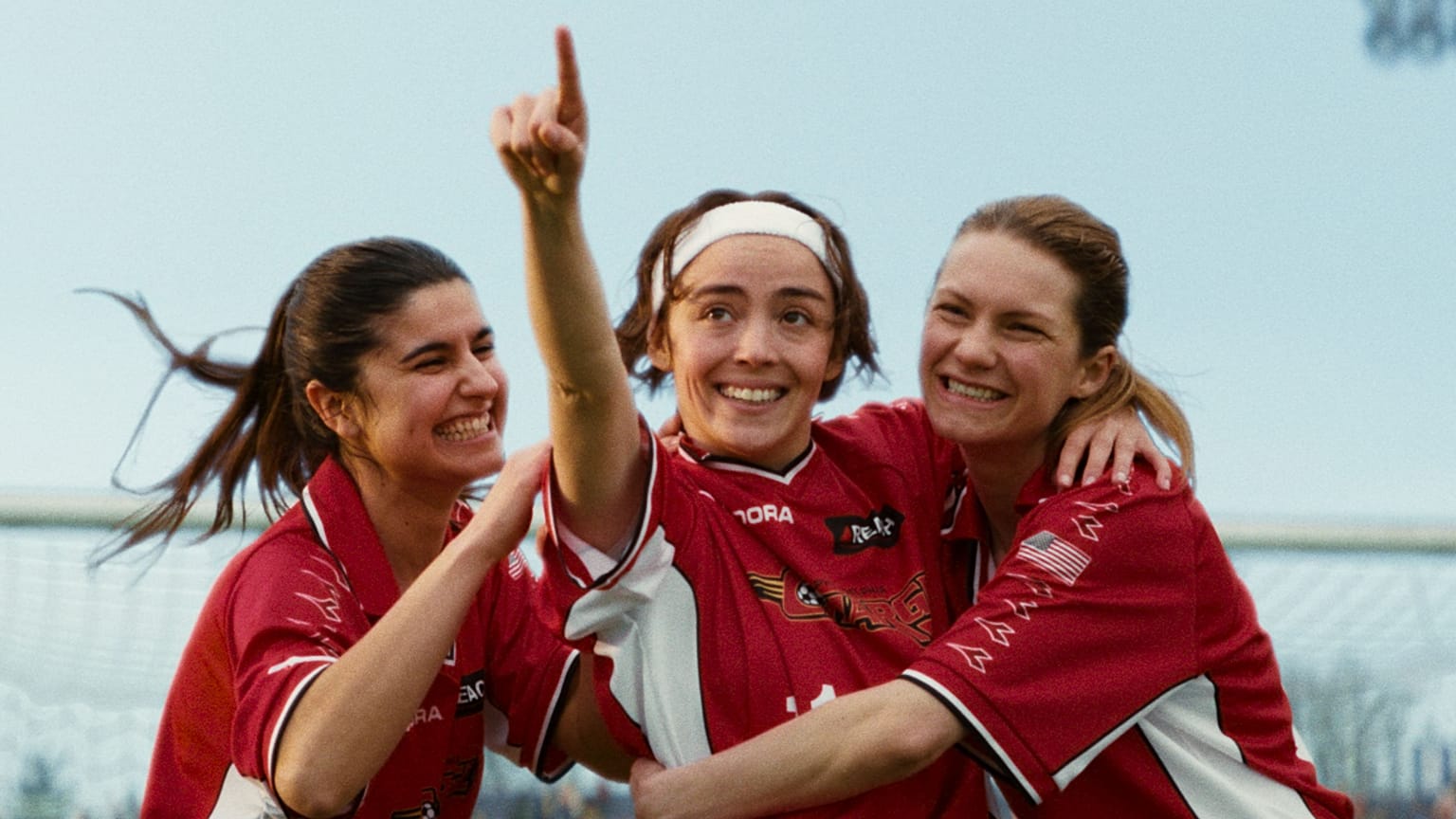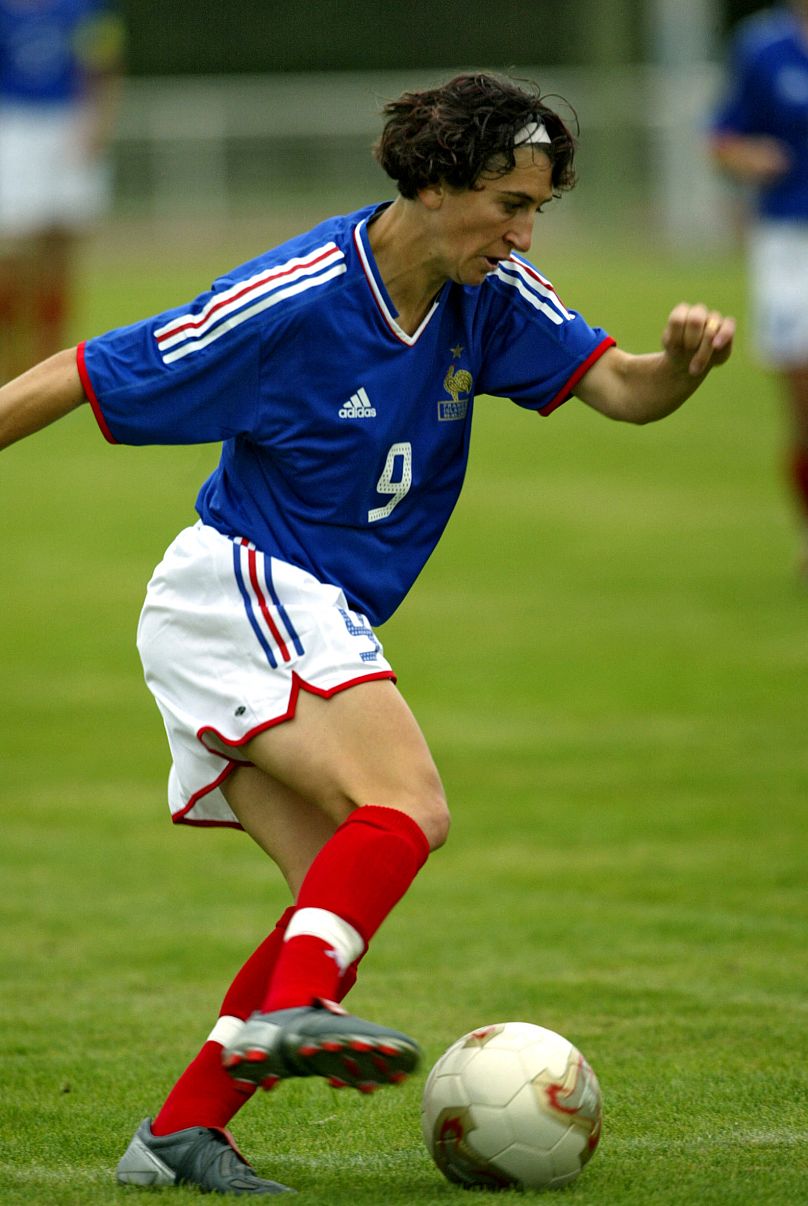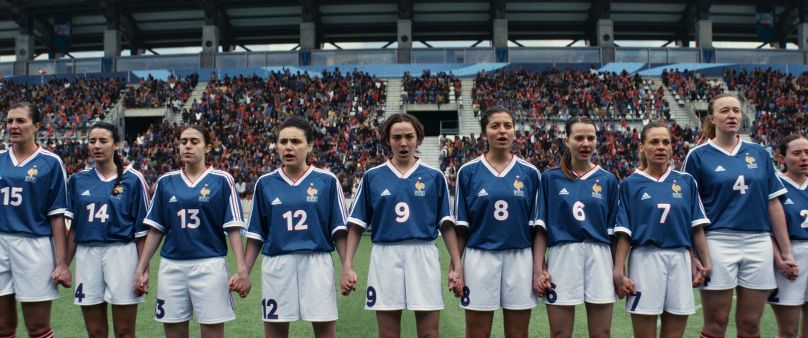Record-breaking French footballer Marinette Pichon is nothing short of a sports legend. Her incredible life is also now the subject of a biopic, which premiered yesterday at the Tribeca Film Festival in the US.
First woman French football player to sign a professional contract, record-breaking scorer of the French national team with 81 goals in 112 matches, LGBTQ+ icon... Marinette Pichon is nothing short of a sports legend.
 ADVERTISEMENT
ADVERTISEMENT
 ADVERTISEMENT
ADVERTISEMENT
Her life is now the subject of Virginie Verrier’s biopic, Marinette, which came out in theatres in France on 7 June and recently premiered at the Tribeca Film Festival in the US. The release was set at a timely moment, about a month before the start of the Women’s World Cup in July.
Garance Marillier (Raw, Titane) plays the football star, who has dedicated much of her life to protesting against the fact that women athletes notoriously receive less media coverage and lower salaries than their male counterparts.
A troubled start
The beginning of Pichon’s sports career was far from easy.
She grew up in Brienne-le-Château, a small community with a population of just under 3,000 in the north-eastern region of France. Pichon first kicked a ball at 5 years old. At home, her mother was steadfastly supportive, but she dealt with an alcoholic, abusive father, and football soon became a way for her to escape the violent realities of her personal life.
In 2018, ahead of the release of her autobiography, “Never Let Go”, Pichon told French newspaper Le Parisien that he was the “devil incarnate”. The athlete also said she believes she would have become a “delinquent” if not for football.
The rise of a football star
Pichon began by playing with the Brienne-le-Château boys' team. This experience inspired her, and she described imitating the boys' moves as she developed on the pitch as a player.
In 1992, at the age of 16, she joined the Saint-Memmie Olympique women's football team in a defensive role before switching to become a striker.
Two years later, Pichon was selected for the French women’s national team. The occasion should have been celebratory, but as a member of “Les Bleues”, the football player experienced harassment from other team members.
Despite the hardship, Pichon becomes the best striker in France.
In 2002, Pichon joined the Philadelphia Charge in the United States, becoming the first woman French football player to sign a professional contract internationally. The same year, she was voted the Women's United Soccer Association Offensive Player of the Year. Pichon “has skill and better speed than most players in the league” reported The New York Times in 2003.
With Pichon on their team, in 2003, France’s women’s team made their debut at the World Cup.
She returned to France definitively in 2004 to join the Paris-based team Juvisy, and retired only three years later at only 31 years old.
Fighting for equality in women’s sports
Pichon’s decision to retire in 2007 came following feelings of frustration with the lack of progress in women’s football and disappointment after the failure of the French team to qualify for the World Cup. She considered that the lack of investment in women’s sports was a handicap to the French team.
The French Football Federation only announced a plan to create a professional women’s league in April 2023. “It was necessary to do something”, emphasised Patricia Costantini, co-president of Egal Sport, a collective fighting for gender equality in sports.
As women’s football is not connected to the Ligue de Football Professionnel, the governing body that runs professional leagues in France, players are relegated to amateur, semi-pro or federal contracts.
“There are some women players who are not paid”, Costantini told Euronews Culture. “They are forced to do other jobs and live on ridiculous salaries.”
Champion of LGBTQ+ rights
Pichon realised she was gay, and struggled for a long time to accept her identity. Although she did not hide her sexuality, she described feeling like she was not able to live her life to the fullest. Eventually, the athlete met her wife, Ingrid Moatti, who is a wheelchair basketball player.
Pichon and her wife used medically assisted in vitro fertilisation to have children, travelling back and forth to Belgium, as such procreation methods were only legalised in France in 2021.
In 2012, Pichon became only the second-ever gay person to obtain paternity leave after the birth of a child, getting eleven days off after the birth of her son.
When she wrote her autobiography, she told French newspaper Le Monde that she wanted people to understand “that you can't throw your child away just because he's gay”. She also added, “If I've been able to help just one person, my life has been a success”.
Marinette is out now in French cinemas and premiered yesterday at the Tribeca Film Festival. Based on the autobiography by Marinette Pichon and scripted and directed by Virginie Verrier, it stars Garance Marillier, Émilie Dequenne, Alban Lenoir, Fred Testot and Sylvie Testud.



















